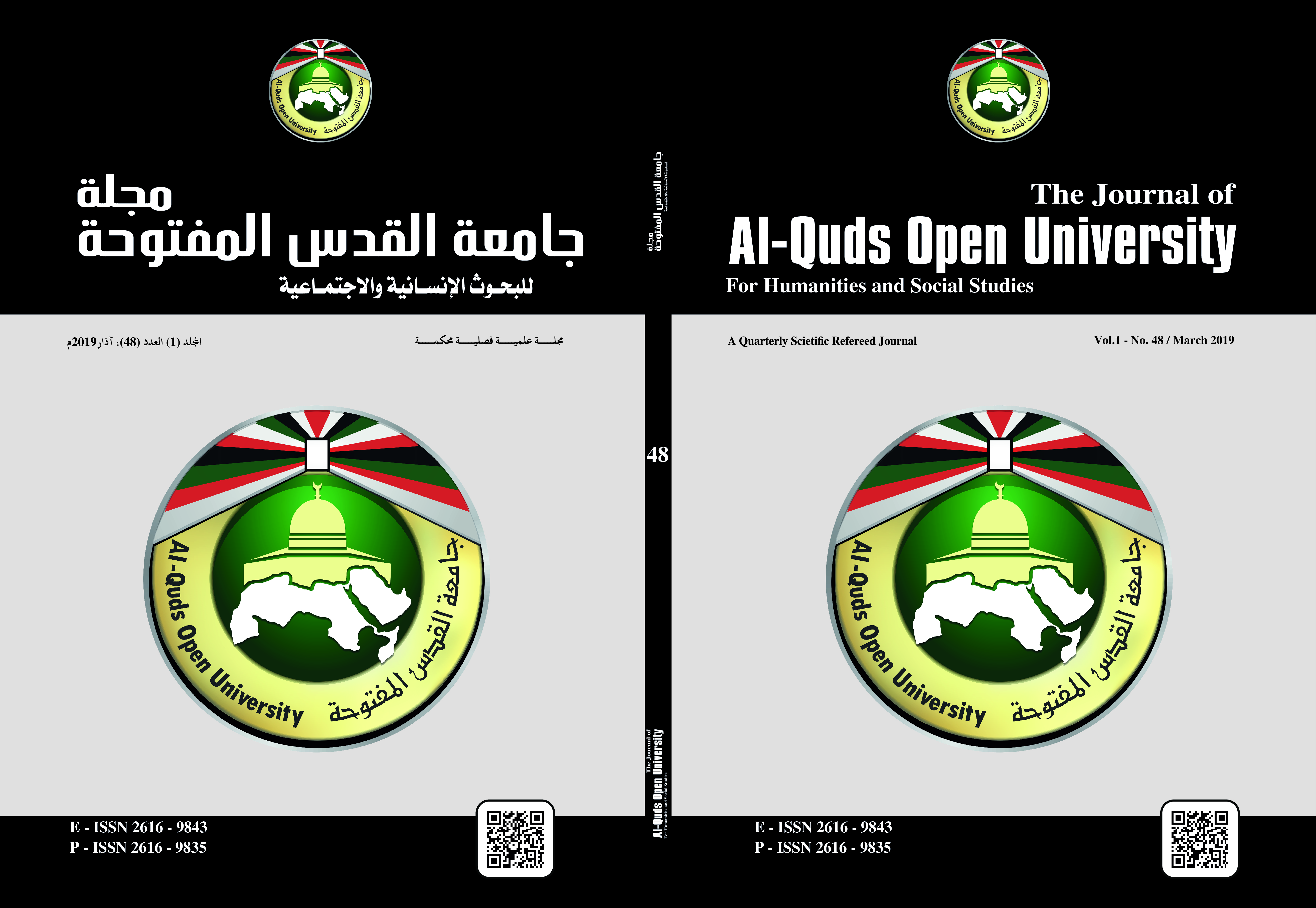The Jurisprudential Impact of the Diverse Guidances on Diacritics Positioning in the Holy Quran’s Recitations
Keywords:
Quranic recitations, jurisprudential effect, guidance, case-ending (harakat).Abstract
This descriptive, analytical and inductive study aimed at explaining the jurisprudential effect of the multiple grammatical positions (case endings) of the Holy Quran recitations in two chapters and a conclusion. The first chapter contained the definition of the Arabic case system, guidance and recitation. On the other hand, the second chapter discussed the effect of difference case ending (harakat) in guiding the Quranic recitations in some verses of jurisprudential rulings. Finally, major findings were included in the conclusion. There is a strong relationship between syntax and interpretation of the verses of the Holy Quran. Accordingly, syntax has the last word of guiding and explaining the meanings and the interpretation of many verses. There are other findings of which that the difference and variety of syntax led to different and variant jurisprudential rulings such as the several opinions in explaining the jurisprudential ruling of (Umrah), washing feet in ablution and committing hunting by a pilgrim.
Downloads
Published
How to Cite
Issue
Section
License
- The editorial board confirms its commitment to the intellectual property rights
- Researchers also have to commit to the intellectual property rights.
- The research copyrights and publication are owned by the Journal once the researcher is notified about the approval of the paper. The scientific materials published or approved for publishing in the Journal should not be republished unless a written acknowledgment is obtained by the Deanship of Scientific Research.
- Research papers should not be published or republished unless a written acknowledgement is obtained from the Deanship of Scientific Research.
- The researcher has the right to accredit the research to himself, and to place his name on all the copies, editions and volumes published.
- The author has the right to request the accreditation of the published papers to himself.













_2.png)
_.png)
_2.png)
_1.png)
_.png)

